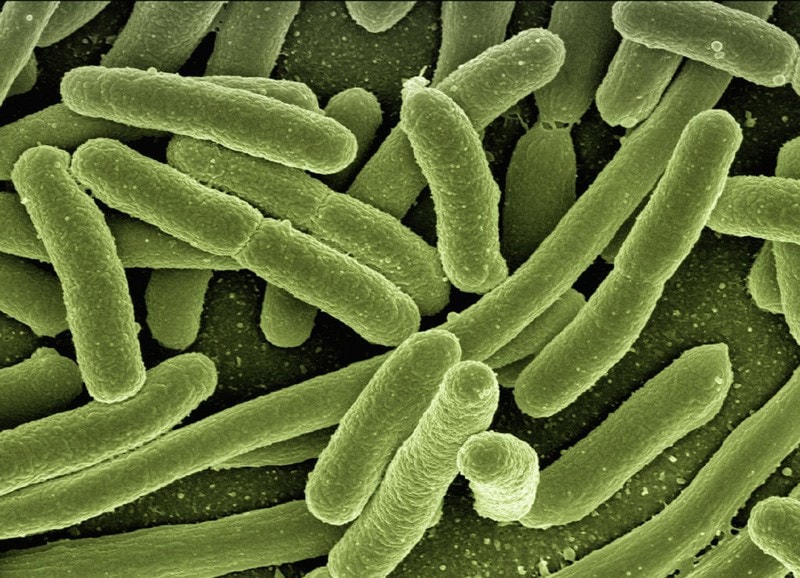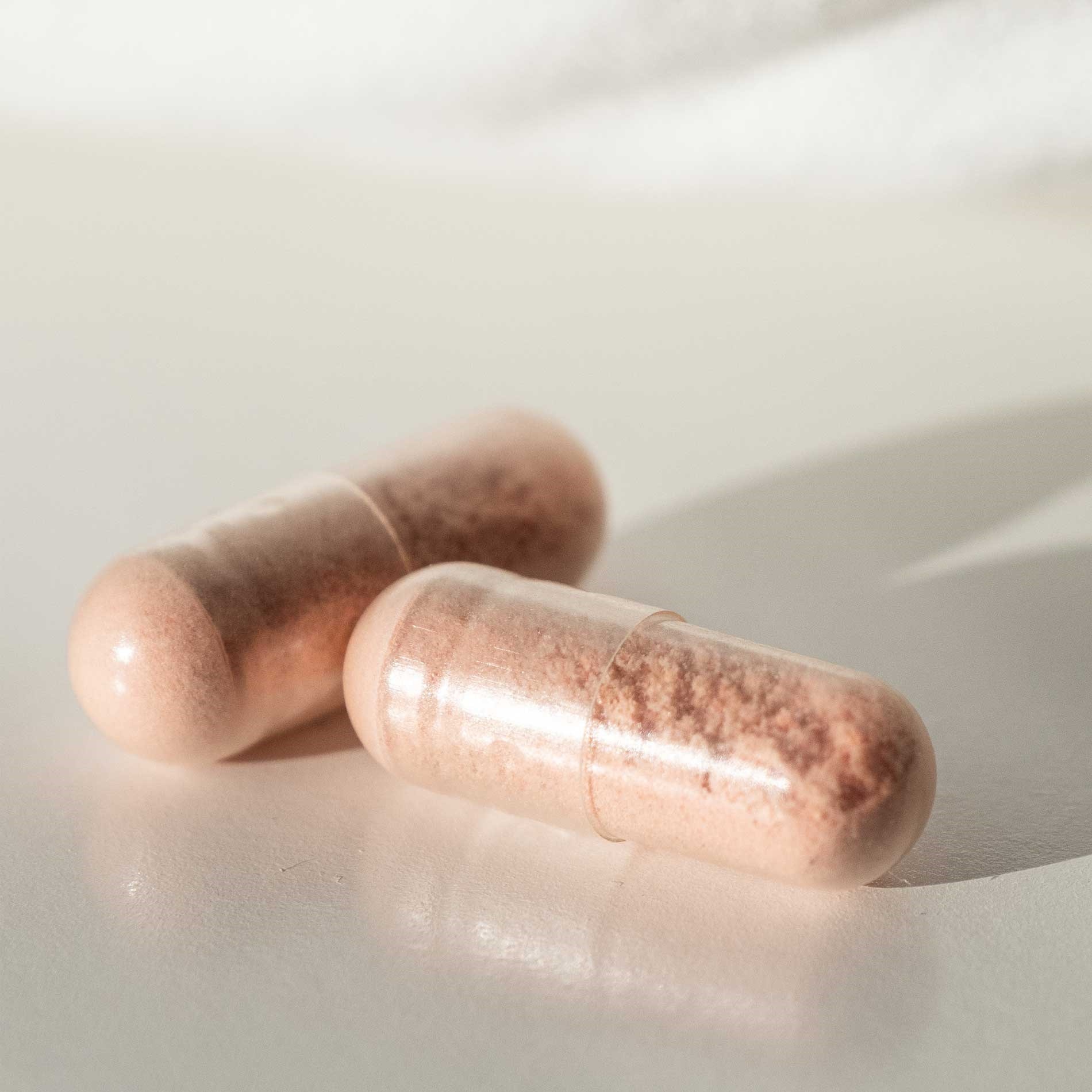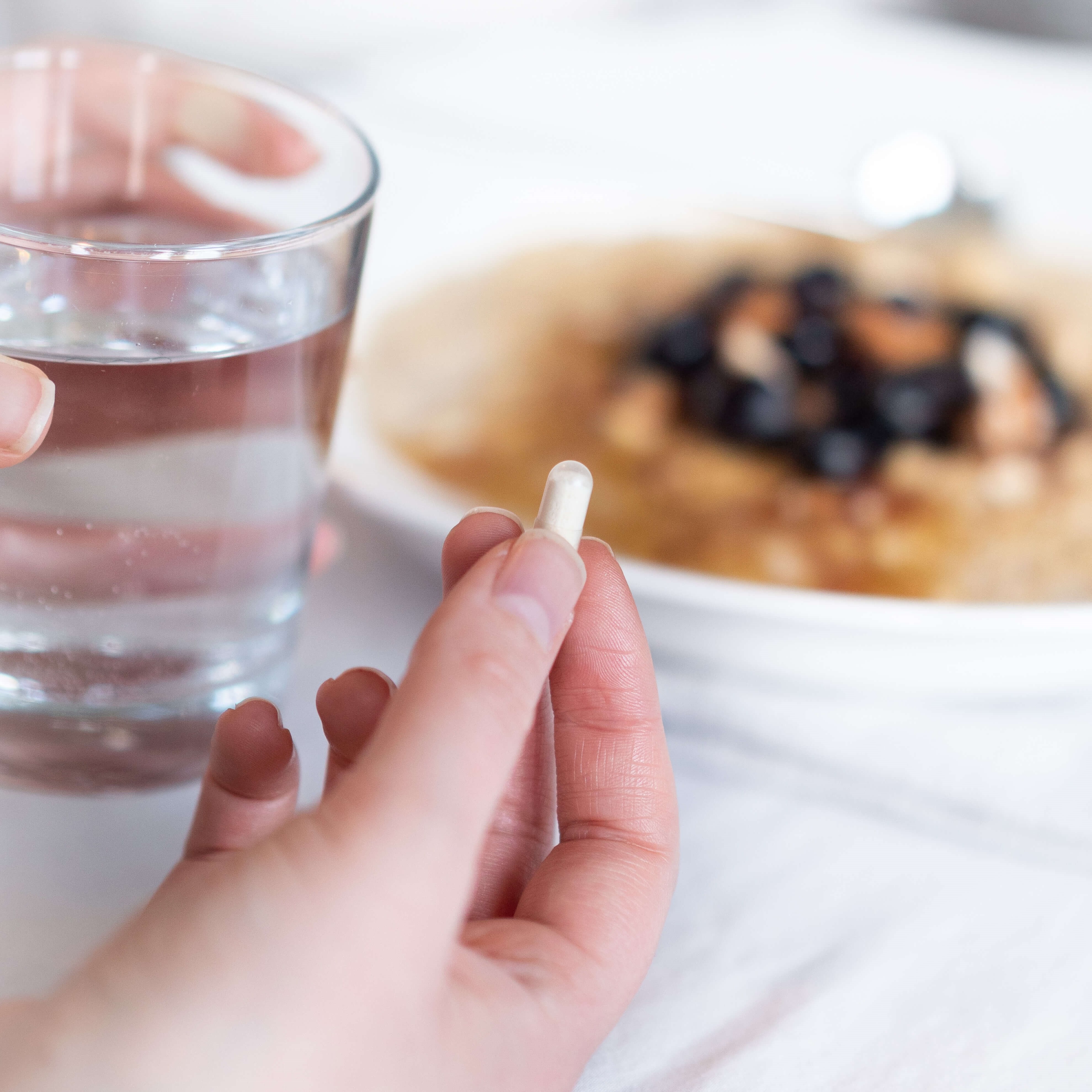Are probiotics safe to take?
Introducing probiotics
Many people find the idea of taking a supplement containing bacteria slightly out of their comfort zone and the question 'are probiotics safe?' is often asked. Probiotics, also known as ‘live cultures’, ‘gut bacteria’, ‘healthy bacteria’, 'gut flora', are natural substances; organisms which are found in all of us. The digestive tract is home to trillions of microorganisms; some of these are beneficial, some are harmful, and some are neutral. When considering whether probiotics are safe or not it might be useful to remember that the term 'probiotics' describes the beneficial microorganisms which, amongst other actions, help to crowd out harmful bacteria in order to keep us healthy. This is important because more than 70% of the body's immune defences are thought to be based in the gut. Healthcare practitioners can read this article on Probiotic Professionals to learn more about how our gut bacteria play an important role in our immune function.
Read on to find out more or jump to different sections using the list below:
- 4 tips for choosing probiotics safely
- Generally Recognised As Safe (GRAS)
- Qualified Presumption of Safety (QPS)
- Everyone is different – are they safe for you?
- Is it safe to take probiotics daily and for a long time?
- Melaena
- Open wounds following major surgery
- Pancreatitis
- Short-bowel syndrome
- ICU (Intensive Care Unit)
- Patients with central venous catheters
- Severely Immunosupressed

An increasing amount of research is being carried out on probiotics, and more precisely on the balance of our gut bacteria and the importance of the different strains of bacteria. Problems arise when the non-beneficial bacteria outweigh the beneficial bacteria – this is called dysbiosis. This balance is very finely tuned and can be upset by antibiotics, being born via Caesarean, excessive cleanliness, what you eat and drink, consumption of sugar and processed meats, among other things. Interestingly, generally speaking it’s the diversity and balance of your bacteria that enhance health.
Balance is the key word here. The body constantly tries to obtain a state of homeostasis (defined as ‘the tendency towards a relatively stable equilibrium between interdependent elements’). It ensures that the body stays at the right temperature, that the body is brought back to a relaxed state after a stressed state, and that the blood is at the right pH level among other things. When any of these systems become unbalanced it causes the body stress, and at times illness.
Gut bacteria seem to work in a similar way. For example, probiotics have been shown to affect weight with an increasing level of evidence linking a healthy balance of friendly bacteria with a healthy body weight and appetite.To learn more, read this article: Do our gut bacteria play a role in metabolic disorders and obesity?Probiotics have also been shown to strengthen our response to stress, anxiety and depression. Healthcare professionals can learn more by reading our article on the research behind the role of probiotics in depression. Probiotics are also immunomodulatory. As 70% of the immune system lies in the gut, taking probiotics has been shown to boost the immune system. However, if you have an over active immune system, such as allergies, probiotics can help down-regulate that to a normal response level. So as you see, this question of balance is an important one. It is detrimental to health when they become imbalanced, with pathogenic bacteria outweighing our beneficial ones. We therefore take probiotics in order to address this and help rebalance our healthy bacteria. So the question is if it’s always safe to take probiotics? The answer is in most cases, yes. Only in exceptional situations where probiotics have perhaps not been quite so well researched, or a person is extremely unwell is it advised to be cautious with them (see the examples below).

4 tips for choosing probiotics safely:
Picking a probiotic supplement can be more complicated than choosing a multivitamin. This is partly because the names are real tongue twisters and may mean little to most people, and also because it is a real unknown to most as to which strain is the one you are looking for for your particular needs and symptoms. If you particularly wish to choose a probiotic with safety in mind, try following these tips:
1. The importance of clinical trials
There is always a discussion around probiotics regarding research and clinical trials. Clinical trials are predominantly carried out in order to test the efficacy of the probiotic. However, they serve as an excellent test of a product's safety too. If you are concerned about the safety of probiotics, choosing a well researched brand which has undergone clinical trials is probably your safest bet! This applies to the probiotic strains within the product but also the end products as a whole. To learn more, read the article: Researching probiotics online: How to identify quality content.

It might be interesting to outline the differences in the types of research as there are several. In-vitro research describes where a product or microorganism has been tested for something in a petri dish, or in a test tube. These are lab based tests and are the first port of call for trialling something. In-vivo research describes a trial that is performed on living organisms – so this would include both animal and human trials. The term 'clinical trials' describes research performed on humans only. These are the most highly sought after trials as they most accurately indicate the effect of something on an actual human being.
Generally speaking, the more researched a microorganism is, the more reassured one can be in regards to its safety. In-vitro tests give a good assessment for the efficacy of a product or strain, however the more human trials a product has been assessed in, the better.
2. Genus, species and strain
The genus, species and strain of the microorganism (e.g. Lactobacillus acidophilus NCFM®) is important. Many products list only the genius and species, but different strains provide different benefits and therefore a reputable company will list these with the entire name. Research shows the important of strain specificity in relation to safety of probiotics9. Healthcare professionals can learn more about Lactobacillus acidophilus NCFM® on the Probiotics Database.
3. The right probiotic for you
At the end of the day, the safest probiotic for you is going to be the one that is most tailored for your needs. If you have constipation and you are taking a probiotic intended for those with diarrhoea, whilst it should not have any particularly negative effects, this is possibly not the best option. So make sure you are looking at a probiotic which has, ideally, been tested in people like you.
4. Possible allergens
Some probiotics may contain allergens such as soya, dairy etc, others don’t. Of course when it comes to safety, if you are allergic to certain foods and ingredients, check the allergens by reading the packaging, and contacting the company if in doubt.
Generally Recognised As Safe (GRAS)
What is GRAS? GRAS is a regulation that comes under the Federal food, drugs and cosmetics Act in the USA, and denotes when a ‘substance is generally recognized, among qualified experts, as having been adequately shown to be safe under the conditions of its intended use’.
Qualified Presumption of Safety (QPS)
What is QPS? Closer to home, QPS is a regulation run by the European Food Safety Authority. A wide variety of biological agents such as bacterial and fungal species or viruses used for plant protection purposes may be authorised in the European Union for use in the food or such like. A certificate of QPS is where a ‘substance is generally recognized, among qualified experts, as having been adequately shown to be safe under the conditions of its intended use’.
Everyone is different – are they safe for you?
• Babies and children – a baby needs live friendly bacteria. Naturally they ingest it from their mother as they pass through the birth canal, however, more babies are born by caesarean sections now. Very young children may also be given antibiotics at a young age, as well as at times being kept possibly overly clean. This can lead to impaired bacterial balance. Taking probiotics may therefore often be beneficial as opposed to unsafe. However, it is advisable to give one appropriate for their age; this should have specific types for infants and children, and may be at a lower dose. For more information about the best probiotics for babies, read Dr. Kate's article: Baby Probiotics

• Older people – it is normal for people to suffer from digestive complaints as they age. As you get older taste and smell changes, mastication of food can become a little more tricky, additionally stomach acid and digestive enzymes start to decline. These shifts can lead to changes in the gut bacteria, and alongside antibiotic therapy, the microbiota in an elderly person can be impaired leading to all sorts of potential digestive issues. It is safe to take probiotics even as we get older, and doing so may even help prevent some digestive impairments and support immune health. Healthcare practitioners can visit the Professionals site to read more about how probiotics might help to support immune health in older people.However, if any of the contraindications listed at the end of the article are present then advice should be taken from a doctor. Ask your probiotic company for advice on which probiotic best supports your needs1.
• Pregnant and breast feeding mums – It is indeed generally safe for this group of people to take probiotics. In fact they can help support the mum’s immune and digestive system and therefore ultimately her absorption of nutrients and the health of her baby. Her bacteria will also be passed on to the child if having a vaginal birth and there has been research to show that some strains of healthy bacteria can be found in breast milk2. Breast milk from a mother with a healthy microbiota will also be more supportive from an immune health point of view. For more information about the use of probiotics during pregnancy, take a look at the following article by Dr. Kate Stephens: Probiotics for Pregnancy. We would advise you, however, to consult your doctor before taking Saccharomyces boulardii. There is no research to suggest that this strain is harmful to pregnant or breastfeeding mums but it hasn't been widely researched in pregnancy so it may be prudent to check with your doctor if you are considering taking products with this strain. Healthcare professionals can learn more about Saccharomyces boulardii on the Probiotics Database.

• On medications – There are no known contraindications with prescription medicine, other than anti-rejection medications. Many people ask if it is safe to take probiotics with antibiotics: the short answer is yes it is, and in fact many doctors are now advocating a probiotic supplement to support a patient’s digestive system and immunity whilst on a course of antibiotics.
Is it safe to take probiotics daily and for a long time?
Yes – it is safe to do so, as long as, if suffering from a serious health condition, you have checked with your doctor first. Our body naturally needs these bacteria, yet there is a constant onslaught of factors which may attack our microbiome. As mentioned above, antibiotics, illness, stress, diet, excess alcohol consumption, anti-bacterial washes and soaps, ageing, and foreign travel are some of these. You may find you like to take one daily because it feels supportive or you may prefer to take them when you feel under stress or at certain times of the year. Everyone is unique and will want to take a different approach. Healthcare practitioners can look for more information about continued use of probiotics on the Probiotic Professionals site.

Those with serious medical conditions should consult a doctor before using probiotics.
There are certain circumstances where taking probiotics may not be recommended. Whilst many probiotic manufacturers do not list any contraindications, perhaps as the risk is generally very low for natural supplements such as live cultures, we prefer to err on the side of caution and list any possible contraindications in terms of particular health conditions. Let's look at some examples of these here.
Melaena
Melaena is the medical term for blood in the stool which has come from relatively high up in the digestive tract. By the time the blood is excreted it has formed a back, tar-like colour and an unpleasant smell. It is different from red blood in the stool or on the toilet paper, as this is fresh blood coming from a tear on the anus or piles. Melaena may be a sign of ill-health in the upper digestive tract, and so it must be investigated medically. Once the cause of the melaena has been found it’s best to check with the doctor if probiotics can be taken.
Open wounds following major surgery
Someone who has had major surgery may find their immune system is compromised, leading to a higher risk of an infection entering through the site of the open wound. It’s best therefore to consult with the doctor before taking probiotics. Additionally for those who have had abdominal or heart surgery, it is overall best to wait until wounds have healed following surgery before taking probiotics, unless advised otherwise by a doctor.
Pancreatitis
The research around probiotics and severe pancreatitis is inconclusive. If you have had pancreatitis in the past then it is best to consult with your doctor as to whether probiotics can be taken. If you are otherwise fairly healthy then it will probably fine to take them, but it’s best to check at your next GP appointment.
Short-bowel syndrome
It is not recommended to give probiotics to infants with short-bowel syndrome.
ICU (Intensive Care Unit)
Patients in the ICU are severely unwell and their immune system will be under severe pressure. At this time it’s not advisable to give probiotics, as all efforts need to be focused instead on the body regaining strength. Since probiotics boost the immune system it might seem like a good idea to take them at this time, but when the immune system is under such pressure it’s advisable not to give probiotics, as they might challenge the body, instead of working with it.
Patients with central venous catheters
A Central Venous Catheter is a tube into a vein in the neck, chest or groin, to deliver nutrients or medications to a patient, or to take regular blood samples. There is a fair risk of an infection developing in the area where the catheter is inserted into the body, so these patients are carefully monitored for this. To be prudent, we recommend that those with a CVC consult their doctor before taking probiotics.
To read more about the rare situations when the use of probiotics might not be advisable without medical supervision, visit When should I NOT take probiotics?
Severely Immunosupressed
Severely immunocompromised or immunosuppressed individuals do not have the ability to mount an appropriate response to any microbe that they come in contact with microbes, even those that are normally neutral or considered beneficial. There may in fact be a benefit in taking probiotics for patients with severe immunosuppression, but there is also believed to be a possible risk in these circumstances. Due to currently insufficient clinical evidence around this area, we would not recommend probiotics for individuals who are severely immunocompromised or immunosuppressed.
Read more about this in I'm severely immunosuppressed. Are live cultures safe?
These are examples where caution should be used when taking probiotics, however, in general probiotics are a safe supplement that are now widely believed to be a positive approach to optimal digestion, immune health, skin health, among many other aspects of our health.
If you find bacteria as fascinating as we do, read the following blog posts:
Gut bacteria, allergies and probiotics on BBC's Horizon
Are dogs, and their bacteria, good for your immune system?
Healthcare practitioners can see:
2 new studies back probiotics for diabetes
References
- Intestinal bacteria and ageing E.J. Woodmansey.The Society for Applied Microbiology, Journal of Applied Microbiology 102 (2007) 1178–1186
- Jost, T., Lacroix, C., Braegger, C. P., Rochat, F. and Chassard, C. (2013), Vertical mother–neonate transfer of maternal gut bacteria via breastfeeding. Environmental Microbiology. doi: 10.1111/1462-2920.12238
- http://www.efsa.europa.eu/en/topics/topic/qps.htm
- http://www.fda.gov/Food/IngredientsPackagingLabeling/GRAS/
- http://cid.oxfordjournals.org/content/46/Supplement_2/S104.full
- Leyer GJ, et al. (2009) Probiotic effects on cold and influenza-like symptom incidences and duration in children. Official Journal of the American Academy of Pediatrics; Vol. 124, pp. 172-179
- Paineau, D. et al. (2008). Effects of seven potential probiotic strains on specific immune responses in healthy adults: a double-blind, randomised, controlled trial. FEMS Immunology and Medical Microbiology, Vol. 53 (1), pp. 107-13
- L. Diop, S. Guillou, H. Durand (2008) Probiotic food supplement reduces stress-induced gastrointestinal symptoms in volunteers: a double-blind, placebo-controlled, randomized trialNutrition Research Volume 28, Issue 1, January 2008, Pages 1-5
- Roe AL et al., (2022) Considerations for determining safety of probiotics: A USP perspective, Regulatory Toxicology and Pharmacology. 136: 105266.
Popular Articles
View all Probiotics articles-
Probiotics17 Dec 2024
-
Probiotics24 Oct 2023


